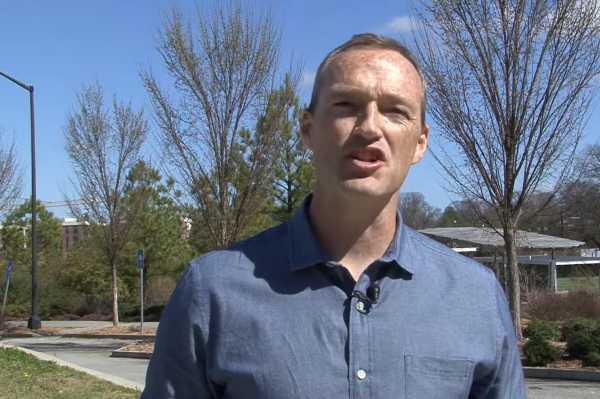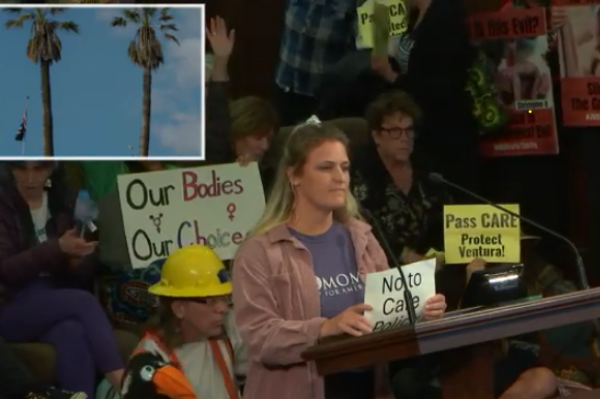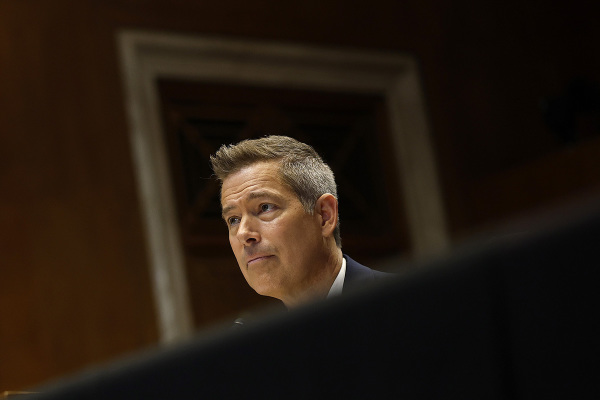Ron Paul Says FEMA is 'Deeply Flawed' Amid Irene Disaster
Republican presidential candidate and Texas congressman Ron Paul thinks the Federal Emergency Management Agency (FEMA) has done more harm than good. Paul made his opinion clear in an interview on Fox News Sunday as FEMA works to aid the disaster relief efforts from Hurricane Irene, now downgraded to a tropical storm.
Paul is libertarian. As such, he sees a smaller role for government, especially the federal government, in directing emergency response efforts.
On Friday, Paul criticized FEMA in an interview, saying, “FEMA is not a good friend of most people in Texas, because all they do is come in and tell you what to do and can't do, you can't get in your houses, and they hinder the local people and they hinder volunteers from going in, so there's no magic about FEMA.”
Fox News Sunday host Chris Wallace asked Paul to explain those remarks further: “You would do away with FEMA and all the things it's doing to help the hundreds of thousands of people on the East coast?”
Paul laughed as he heard the question and retorted, “Have you read the reports coming out of New Orleans and all the wonderful things they did [after Hurricane Katrina]? Giving checks to people who didn't even live there. Sitting in hundreds of millions of dollars worth of trailers that they had to junk because they didn't meet FEMA standards?”
Paul went on to explain that he would not “get rid” of FEMA “in one day,” but it is an agency that is “deeply flawed” because it exemplifies “bureaucratic central economic planning.”
Paul also said that FEMA is “in big trouble financially” and “about $20 million in debt."
“FEMA has been around since 1978, it has one of the worst reputations for a bureaucracy ever,” Paul said.
“You can't imagine how many calls we get because FEMA is getting in the way and they can't get their checks and they can't get their bailout, and then these checks go to contractors … the people don't end up with the money, the contractors end up with the money, sometimes in no-bid contracts. So, anyone who wants to defend this department, this agency, they have a tough argument.”
Wallace also asked Paul if he would support an emergency funding bill for FEMA in the aftermath of Hurricane Irene.
“Where would the money come from? We don't have any money. What are you going to do, go hat in hand to China, and borrow the money?” Paul asked rhetorically.
Paul did suggest one way, however, that the federal government could help with monetary aid for Hurricane Irene disaster relief.
“Obama, you want a billion dollars? Cut two billion dollars, quit that war in Libya that is undeclared and unconstitutional, bring those troops home, save two billion dollars, put a billion against the deficit, and yes, tie our people over. We've conditioned our people that FEMA will take care of us and everything will be OK. But you try to make these programs work the best you can, but you can't just keep saying, oh they need money. Well, we're out of money, this country is bankrupt.”
FEMA also creates more problems by providing insurance to people who build homes in coastal areas, according to Paul.
“So, we pay people to build on beaches and then you have to go and rescue them. It's so far removed from the market and the understanding of what insurance should be about. Insurance should measure risk. It shouldn't be a bailout program endlessly and encourage people to make mistakes and that is what we continuously do in flood prone areas.”
Paul was also asked to explain what he would do, as a disciple of the Austrian school of economics, to boost the economy and reduce government debt.
“Take [the government's] hands off it, let the people take care of it. Let the people who have lived beyond their means, let them go bankrupt, let the liquidation occur, get rid of the mal-investment,” Paul stated.






















